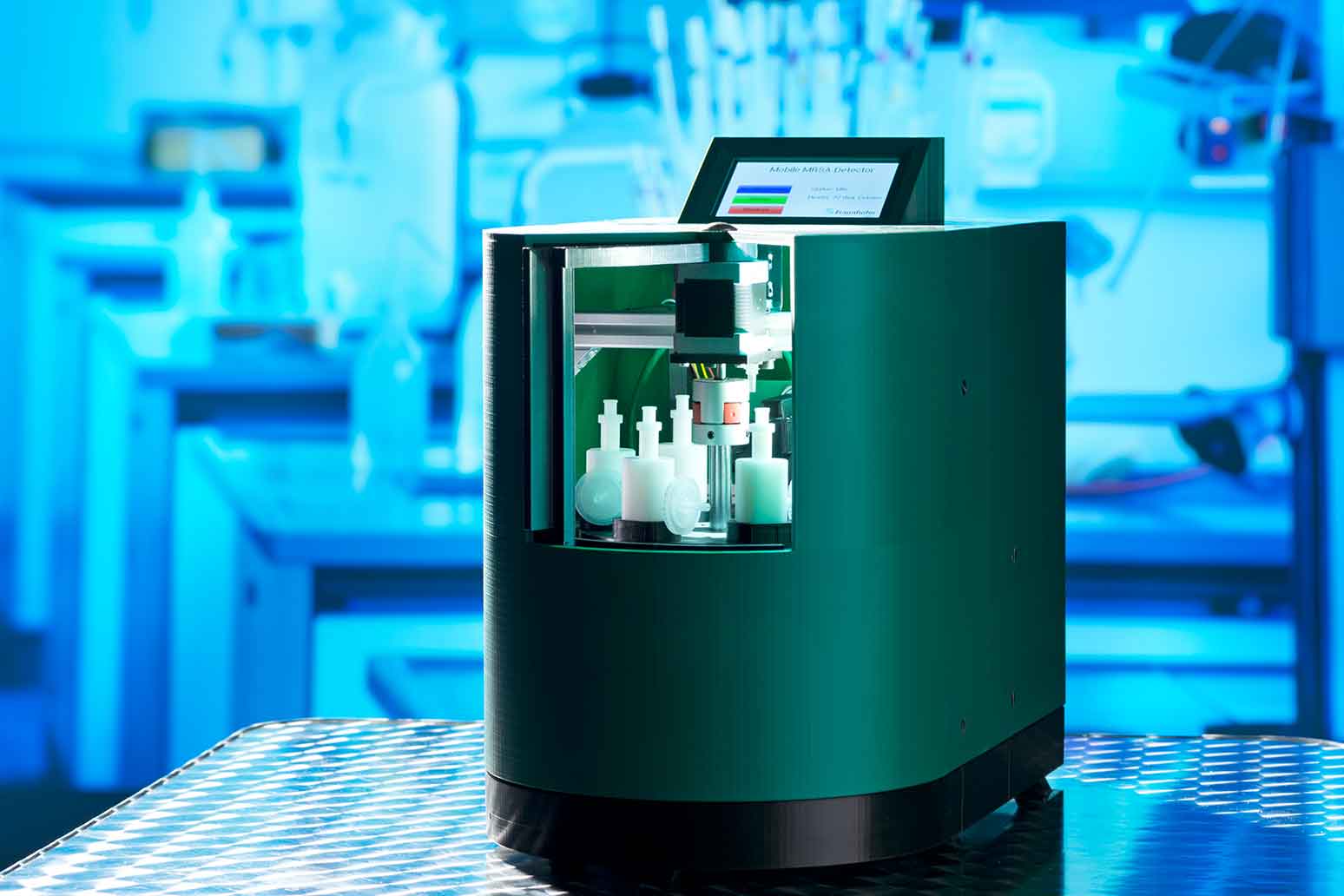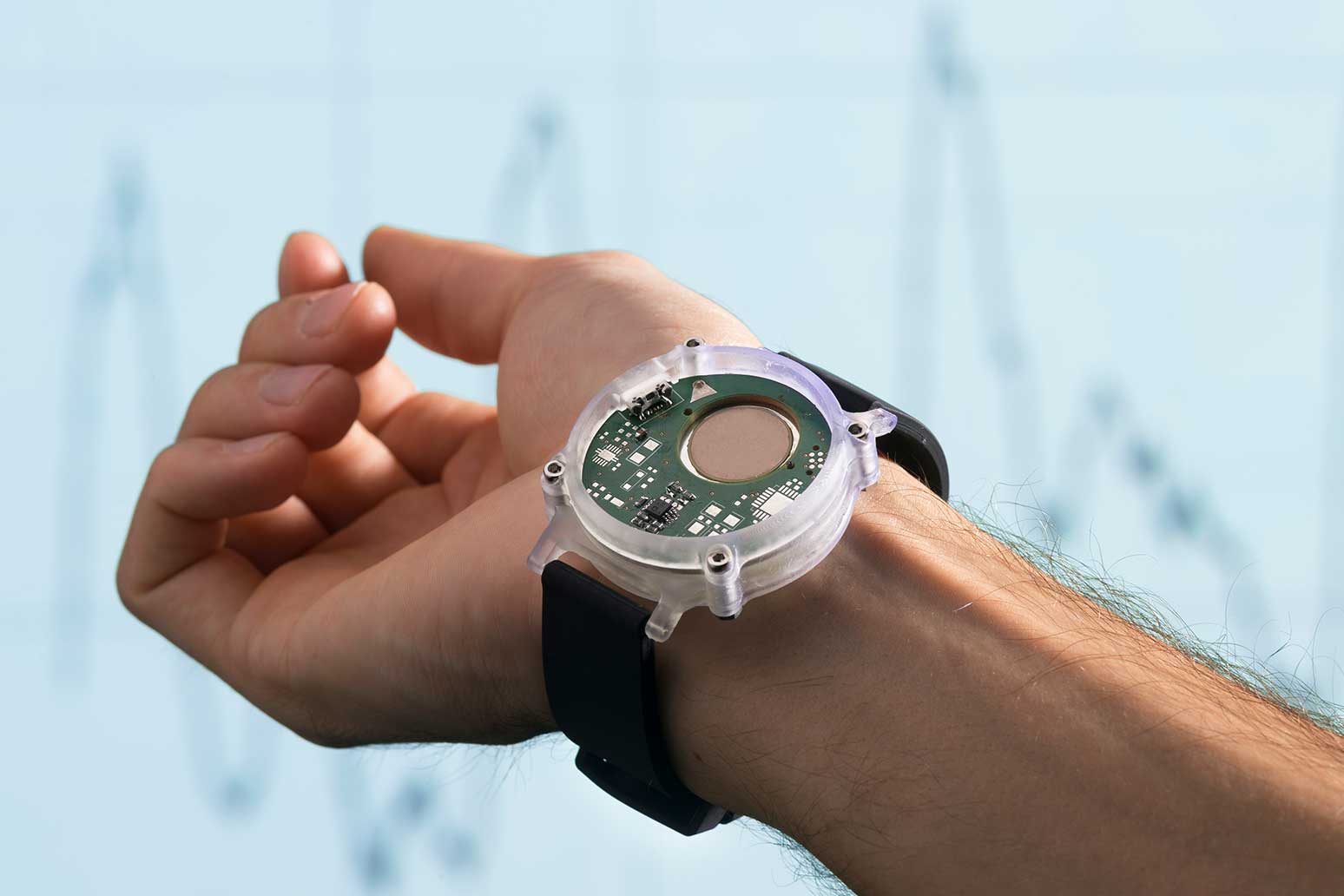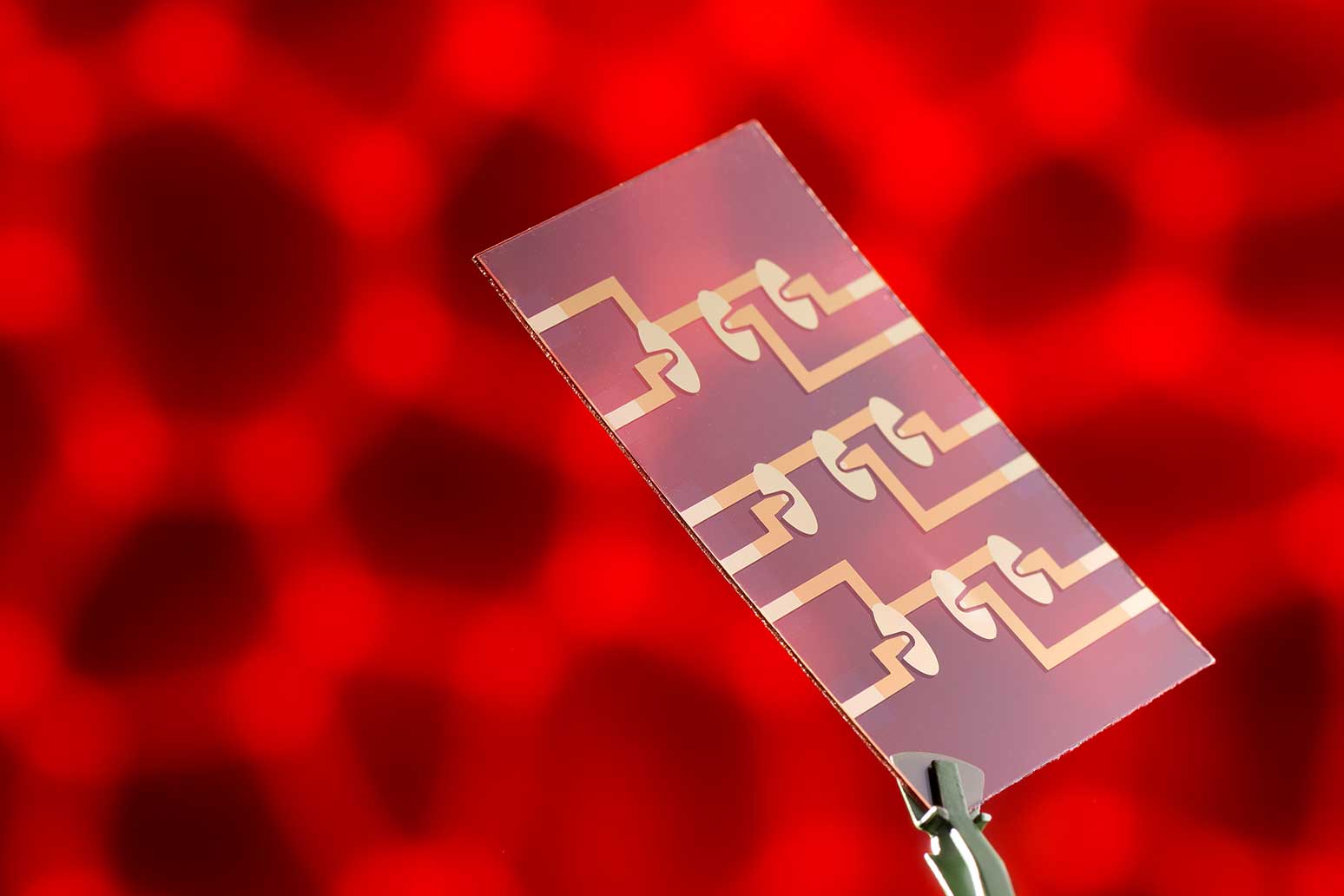The combination of new technologies and digitalization in medicine opens whole new opportunities for future diagnostics and therapy. The so-called intelligent medicine offers an excellent chance for affordable healthcare provision, available for everybody and for the good of the patients. Research in this area is highly innovative and requires the interdisciplinary collaboration between different experts such as engineers, natural scientists and medical professionals. Fraunhofer EMFT contributes to numerous medical R&D projects with its competences in sensor and actuator technologies, combined with artificial intelligence.
Sensors and Actuators for Intelligent Medicine

Sensor technologies as a bridge to digitalization in medical diagnostics
Sensor technologies are indispensable for modern medical technology and play a crucial role in medical diagnostics. Already today, sensors deliver the necessary data for monitoring the progression of diseases. They can monitor the healing process of bone fractures, record a sudden growth of a tumor and help decrease the amount of animal experiments in testing of new medicines. Sensor are able to capture various analogue patient data and to transform them into a digital format, thus providing an important bridge to digitalization in medicine. Combined with software-based analysis methods, they help to expand the diagnostic possibilities and offer a high-quality basis for the selection of suitable therapies. The application spectrum of the Fraunhofer EMFT sensor technologies in medical diagnostics ranges from early detection of diseases with Point-of-Care diagnostics and Lab-on-Chip systems to monitoring of cell reactions to environmental impacts and telemedical support of patients at home.
Piezo-driven micropumps for intelligent therapy approaches
Fraunhofer EMFT piezo-driven micropumps are excellently suited for exact handling and control of extremely small quantities of liquids and gases. Due to their small size and dead weight they are predestined for use in medical technology systems and applications. They can be implanted or body-worn for drug dosing in e.g. pain, diabetes or cancer therapy, delivering the exact right amount of drug continuously or in regular intervals, as regulated by individual control. They benefit the patients by allowing for higher mobility and flexibility. Further examples of medical applications of micropumps are hydraulic micro implants filled with air, micro reservoirs or supporting sensors in diagnostics.
Powerful cooperation: Intelligent implants
Integration of miniaturized high-precision sensors and actuators with modern signal processing and artificial intelligence provides a basis for new high-performant methods in medical diagnostics and therapy. This combination enables the development of so-called intelligent implants, utilizing sensor-supported diagnostics for novel therapeutic measures in personalized medicine. The real-time measurements of the sensors enable immediate automatic adaptation of the therapeutic scheme – for example drug dosing – before the effects of the bodily phenomena measured by the sensors are visible or measurable for the medical therapist. Such early intervention increases the chances of recovery, reduces the cost and time of treatment, and improves the quality of results for the patient. Such systems integrating sensors, actuators and artificial intelligence also open new fascinating possibilities for restoration of lost or limited bodily functions.


